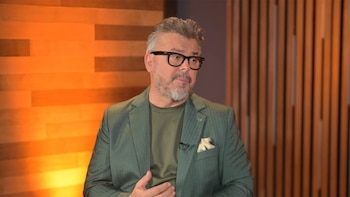Will the Olympic Park venues pay for themselves in the long run and if so how? Are the right decisions being made now to ensure fair access for the local community?
The London Assembly’s Economy Culture and Sport (ECS) Committee[1] today launched an investigation[2] focusing on the legacy plans for the 2012 Aquatics Centre, Handball Arena, VeloPark, Eton Manor and the Hockey Centre.
The investigation, which follows on from a separate review of the Olympic Stadium[3], will examine whether the plans being drawn up for each venue strike the right balance between cost to the taxpayer, community access and elite use.
Dee Doocey AM, Chair of the ECS Committee said,
"It’s not every day that London gets a brand new Olympic-sized swimming pool or state-of-the-art velodrome so we need to be sure the right decisions are being made about its long-term future.
"Each of the venues presents a different challenge, but our priority is to ensure that the Olympic Park Legacy Company get the right balance between cost to the taxpayer and fair access for London’s elite and amateur athletes."
The Committee will consider the estimated operating costs, revenues and public subsidies required to run the venues and make recommendations based on best practice at similar venues, such as the Manchester Velodrome and the Ponds Forge International Sports Centre in Sheffield.
The Olympic Park Legacy Company, which is responsible for the Olympic Park after the Games, put the operation of the Aquatics Centre and Handball Arena out to tender in January this year. Ownership of the Velodrome and Hockey Centre is due to be transferred to the Lee Valley Regional Park Authority, which already operates the White Water Centre.
The scope of the investigation will cover:
Aquatics Centre. Home to elite swimming and diving during the Games, the £262m building designed by world-famous architect Zaha Hadid will be reduced from 17,500 seats to a maximum capacity of 3,500 after the Games.
Handball Arena. Home to fencing and Paralympic goalball as well as handball, the Arena will seat up to 7,500 people after the Games, making it the third largest indoor arena in the capital after the O2 and Wembley Arena.
VeloPark. Comprising the iconic Velodrome and nearby BMX track, road circuit and mountain bike trail, the VeloPark will have its capacity reduced from 12,000 to 6,000 after the Games.
Hockey Centre. The temporary hockey pitches will be relocated to form part of the Eton Manor complex with a legacy capacity of 3,000 or 15,000 in temporary stands, down from 20,000 during the Games.
Eton Manor. Hosting an aquatics training centre and Paralympic tennis during the Games, Eton Manor will become a community sports centre boasting tennis courts, five-a-side football and the new home for the Hockey Centre.
The Committee will hear from legacy planners and industry experts at public meetings during the summer. A full report is expected to be published in the autumn.
For more information, contact:020 7983 4504
As a service to our readers, Around the Rings will provide verbatim texts of selected press releases issued by Olympic-related organizations, federations, businesses and sponsors.
These press releases appear as sent to Around the Rings and are not edited for spelling, grammar or punctuation.
Your complete source of news about the Olympics is www.aroundtherings.com, for subscribers only.
Últimas Noticias
Sinner-Alcaraz, the duel that came to succeed the three phenomenons
Table tennis: Brazil’s Bruna Costa Alexandre will be Olympic and Paralympic in Paris 2024

Rugby 7s: the best player of 2023 would only play the medal match in Paris

Rhonex Kipruto, owner of the world record for the 10000 meters on the road, was suspended for six years

Katie Ledecky spoke about doping Chinese swimmers: “It’s difficult to go to Paris knowing that we’re going to compete with some of these athletes”




